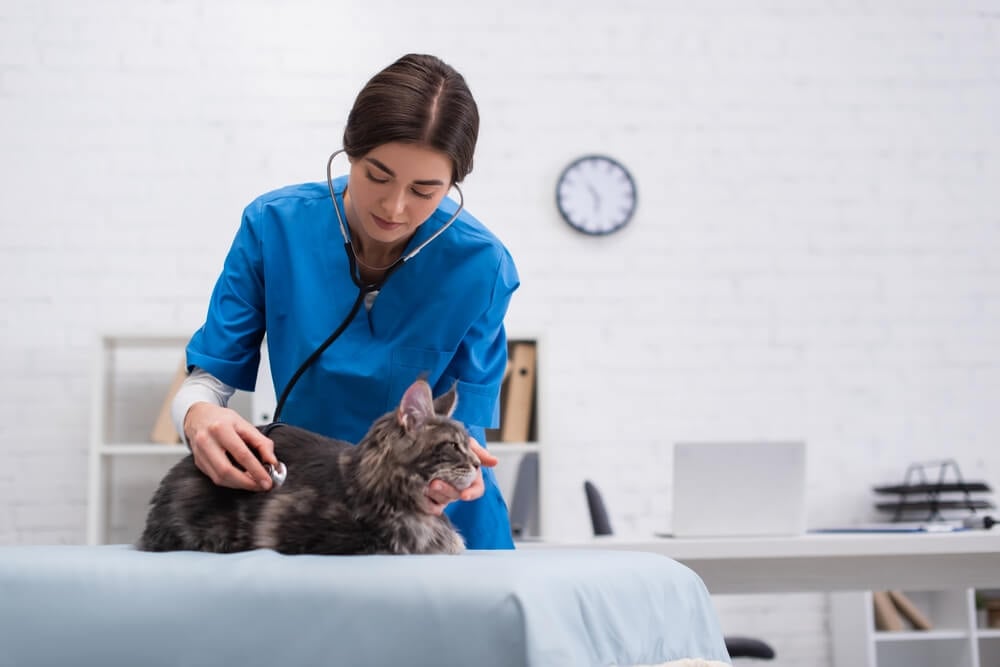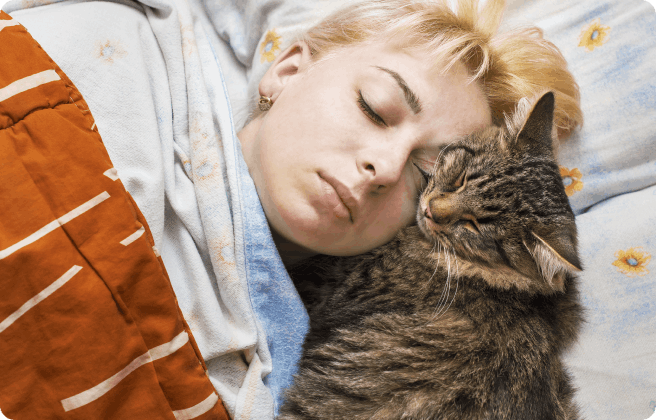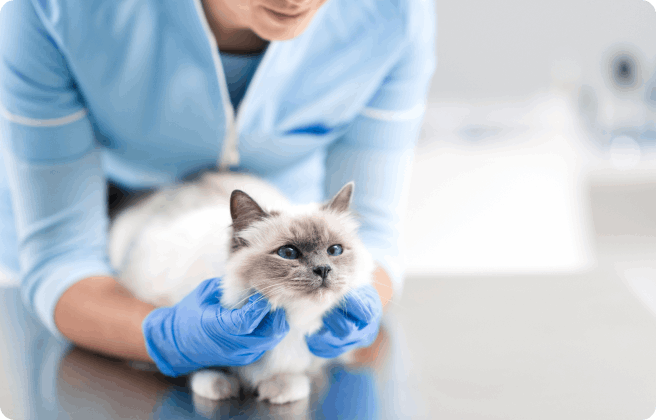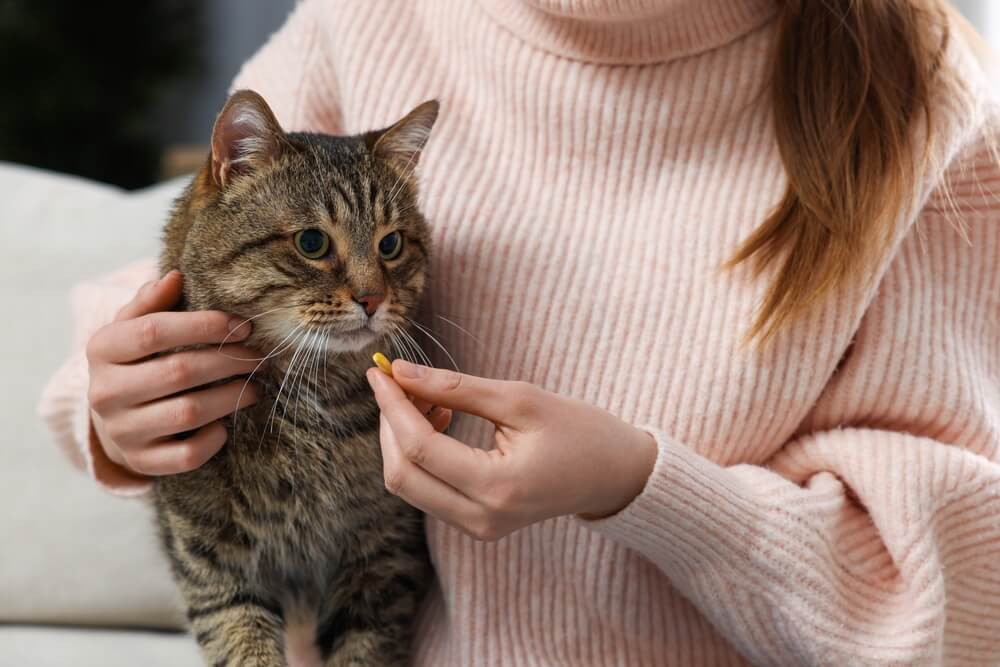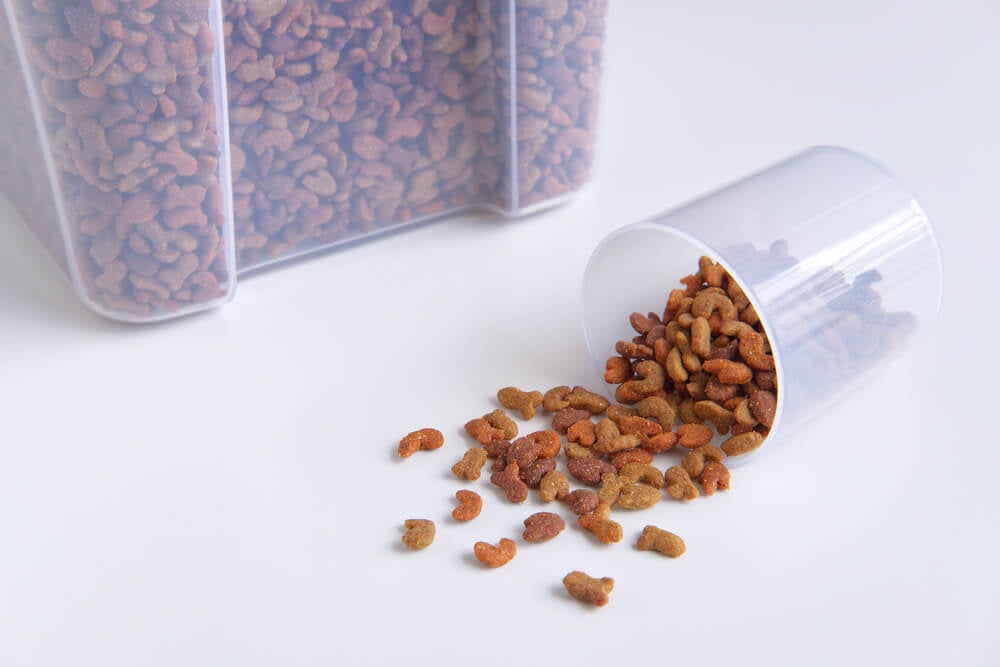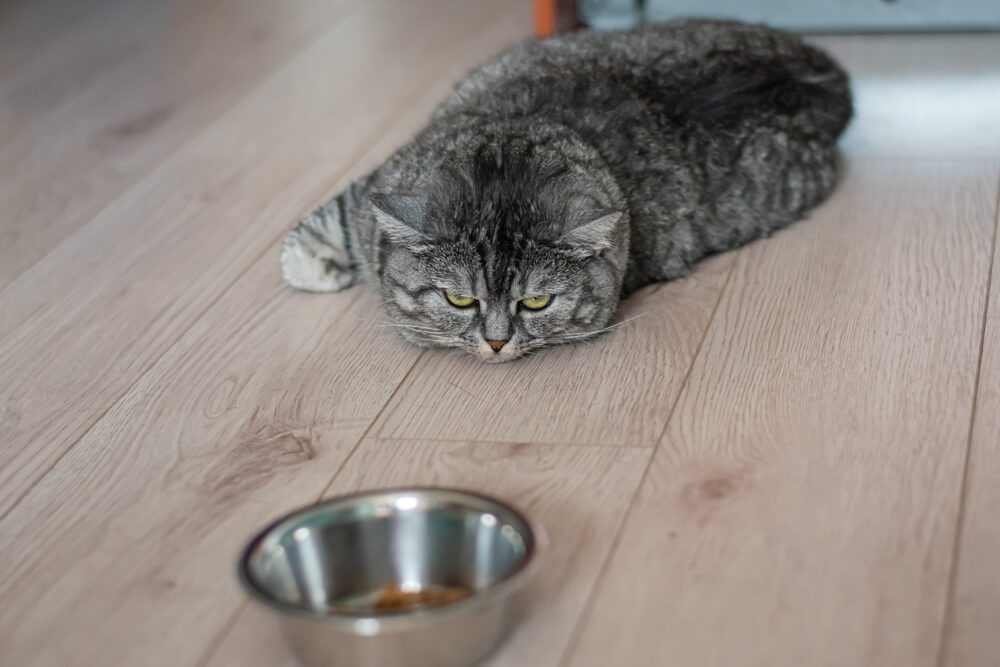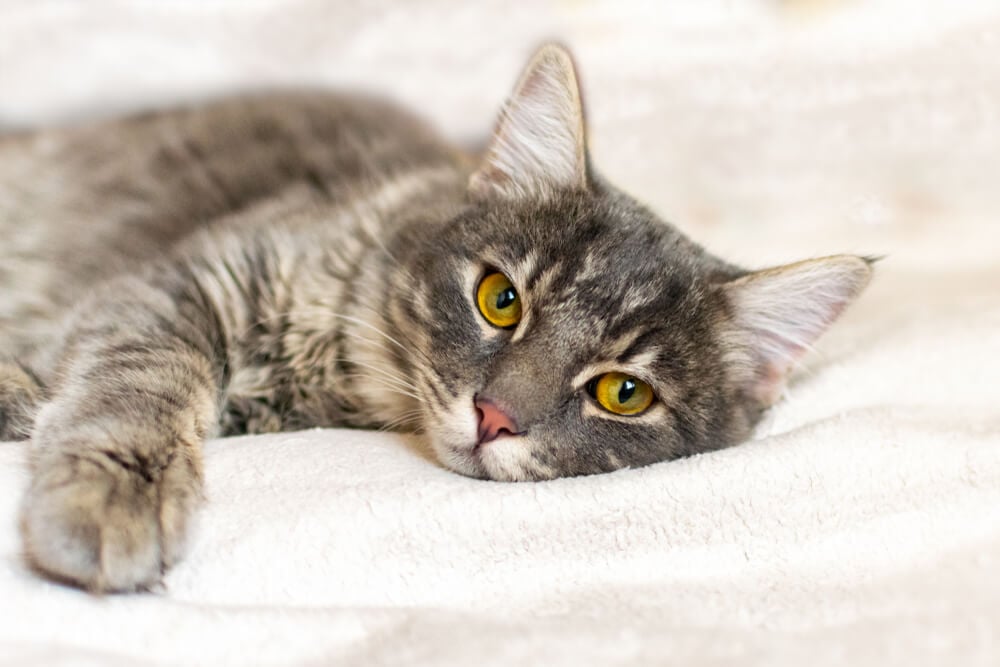
If your cat is suffering from sickness, it can be a stressful time. Often, it’s not clear what’s causing the problem. Is it something they ate? Is it something they’re allergic to? Or is the cause something more serious?
We’re here to help you understand how to tell if your cat has a sensitive stomach, and how to help them if they do.
The first thing to assess is your cat’s symptoms.
What are the symptoms
Often, it will be fairly obvious if your cat is suffering from an upset stomach as they will show signs of gastrointestinal distress. These can include:
- Vomiting
- Loose stools
- Diarrhea
- Passing gas
- Acid reflux
- Lethargy
- Bad breath
- Loss of appetite
The problem is that many of these symptoms can be linked to other medical issues, so working out the cause of your cat’s sensitive stomach is not always easy.
What can cause stomach issues?
There can be a number of reasons why your furry friend is feeling unwell and suffering from a sensitive stomach. We’ve highlighted some of the main possible causes below, but always check with your veterinarian if you’re concerned there may be a serious illness or issue behind the symptoms.
Food intolerance
This is when your cat’s digestive system reacts negatively to a certain food. Just like in humans, your cat’s digestive system can sometimes struggle to digest certain foods, and as a result, it can lead to vomiting, cramps, diarrhea, loose stools, or even constipation.
If your cat is hunting outdoors, you have the added problem of not knowing exactly what they’ve eaten or what’s causing the issue.
It should be added that it’s rare for cats to suffer digestive problems from food. It sometimes occurs if you change your cat’s diet after a long time eating one type of food. Fats can cause digestive issues for cats in certain cases, so if you’ve opted for a diet high in fats, such as pork, beef, lamb, or dairy, it might be worth trying to swap it for a leaner diet that includes less fat and more fish, vegetables, and poultry.
Too much or too little fiber can also cause digestive upset for your cat. Check fiber levels on your cat’s food if you’re worried — high-quality cat food will have the right amount of fiber for your cat, delivered via grains or vegetables.
If you’re not sure of the source of the problem, you could try giving your cat different foods and keeping a journal of what you’re feeding them and when, as that can help pinpoint exactly what’s causing problems.
If you plan to introduce a new food or diet, it’s best to make the change gradually rather than simply swap out the new food for the old. Mix some of the old food with the new food, keep an eye on your cat to see if they begin to suffer any symptoms, and gradually increase the amount of new food while decreasing the old food over the following days and weeks if your cat appears to be suffering no adverse reactions.
Allergies
If your cat has reacted to something they’re allergic to, a sensitive stomach isn’t usually the primary sign, but it can occur alongside other symptoms. Usually, an allergic reaction manifests itself in itchy bumps on your cat’s skin, so check for these if your cat also has signs of a sensitive stomach.
What could be other causes of my cat’s sensitive stomach?
Stress
High stress can upset a cat’s stomach. Whether it’s the neighborhood alpha male harassing your cat, or a significant change in routine such as moving home or introducing another pet to the household, stress can have a significant effect, and even lead your cat to experience physical issues as a result.
If your cat’s showing symptoms of an upset stomach, try to determine if you’ve made any major changes to their routine recently and, if so, give your cat more time and space — play with them more, and ensure they have their own bed and quiet space away from anything that might be making them anxious, and hopefully, their symptoms will settle down.
Foreign objects
If your cat has eaten something they shouldn’t — whether it’s a plastic lid or a length of wool — it can cause problems with their digestive system, leading to vomiting and other signs of stomach upset.
You may see signs around the house that your cat has been gnawing at something they shouldn’t, or find evidence of what they’ve eaten in their vomit. Again, it could be down to stress, or it could simply be feline pica, where your cat purposefully eats non-edible items for reasons that aren’t fully understood.
Infections and parasites
The other main cause of stomach problems for cats is infections or parasites.
Cats can pick up parasites such as hookworms and tapeworms from a wide range of sources, and outdoor cats in particular are at risk from eating soil, feces, rotting food, and fleas. They can also suffer infection from bacteria such as salmonella.
All of these issues can cause stomach problems, with symptoms overlapping with the symptoms associated with a sensitive stomach.
If you think your cat is suffering from a bacterial infection or a parasite, you’re advised to contact your vet.
What to do if your cat is suffering from stomach issues?
A change in diet can often benefit your cat’s sensitive stomach (if it’s not caused by a more serious medical issue).
A diet based on high-quality cat food can help improve any gastrointestinal distress your furry companion might be experiencing.
The following types of food can help cats with sensitive stomachs:
Low-fat protein
Low-fat animal-based protein such as fish, chicken, duck, and turkey contain less fat than beef, pork, and lamb, which can be kinder to some cats’ stomachs.
Grain-free diet
Moving your cat onto a grain-free diet could potentially help, as some grains can cause digestive problems for cats.
Probiotics
Adding probiotics to your cat’s diet can often help with stomach problems, in particular by improving their gut health.
See our list of the best foods for cats with a sensitive stomach to help you.
We uphold the highest editorial standards when creating the authoritative content pet parents rely on and trust.
Every piece of clinical content on the Cat Food Advisor is reviewed by our certified Veterinary Advisory Board, which consists of licensed veterinarians and medically certified specialists.
Our reviews are completely independent; we are not paid by any pet food company to promote their products favorably. We do not accept money, gifts, samples or other incentives in exchange for special consideration. For more information see our Disclaimer & Disclosure page.




